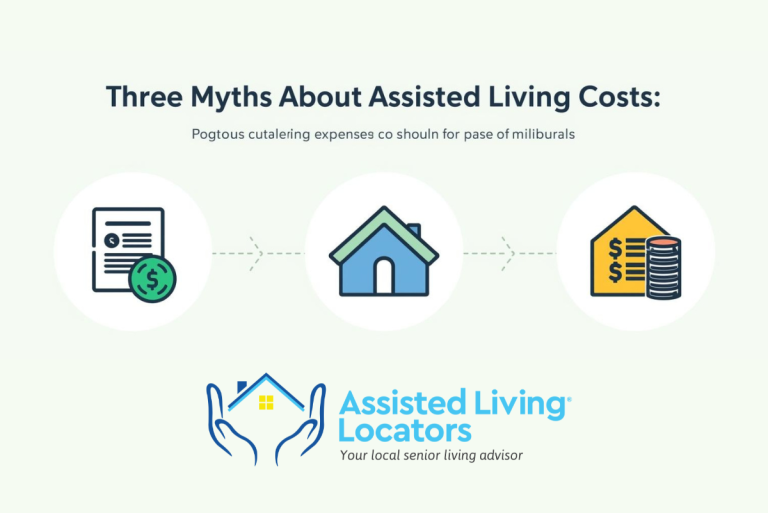Ensuring the well-being of the elderly loved ones, with heart health as a top priority, involves maintaining a heart-healthy diet to prevent cardiovascular issues and enhance overall quality of life. This responsibility includes managing and supporting their dietary needs by incorporating foods rich in fiber, antioxidants, vitamins, and minerals, while minimizing unhealthy fats, sodium, and sugars.
Heart-healthy choices such as fruits, vegetables, whole grains, lean proteins, healthy fats, and low-fat dairy can significantly reduce the risk of heart disease, manage blood pressure, and maintain healthy cholesterol levels. By prioritizing these nutritional needs, caregivers contribute to seniors' long-term health and happiness, showing love and dedication through thoughtful dietary care.
Why Focus on Heart-Healthy Foods?
Heart disease remains a leading cause of death among the elderly. According to the American Heart Association (AHA), a staggering nearly 70% of individuals aged 65 and older have some form of cardiovascular disease. This alarming prevalence underscores the importance of focusing on heart-healthy foods for your elderly loved ones. The impact of diet on cardiovascular health is profound; a balanced diet rich in nutrients can significantly reduce the risk of heart disease, manage blood pressure, and maintain healthy cholesterol levels.
Numerous challenges arise in ensuring a heart-healthy diet for elderly loved ones. One primary difficulty is overcoming ingrained eating habits that may not be conducive to heart health. Additionally, the physical and cognitive limitations of aging can make meal preparation and dietary changes more challenging. It can be difficult to encourage them to try new, healthier foods and to consistently make heart-smart choices.
Furthermore, managing special dietary needs alongside existing medical conditions can complicate the creation of a comprehensive, heart-healthy meal plan. Despite these challenges, providing heart-healthy foods is essential. By prioritizing a diet that supports cardiovascular health, caregivers help seniors maintain their well-being and improve their quality of life, demonstrating dedication and care through every meal prepared.
Essential Heart-Healthy Foods
Maintaining a heart-healthy diet for your elderly loved ones is one of the most impactful ways you can support their overall health and well-being. A diet rich in nutritious foods can help reduce the risk of heart disease, manage blood pressure, and improve cholesterol levels, all of which are crucial for maintaining cardiovascular health. Here, we highlight some essential heart-healthy foods and provide practical tips on how to incorporate them into daily meals.
- Leafy Green Vegetables: Leafy greens like spinach, kale, and Swiss chard are packed with vitamins, minerals, and antioxidants. High in vitamin K and dietary nitrates, they help protect arteries and reduce blood pressure. Add them to smoothies, salads, or sauté them for a quick side dish.
- Whole Grains: Whole grains such as oats, brown rice, quinoa, and whole wheat are rich in fiber, which lowers cholesterol and improves digestion. Start the day with oatmeal, use brown rice or quinoa in salads, and choose whole wheat bread or pasta for added nutrients.
- Berries: Berries, including strawberries, blueberries, raspberries, and blackberries, are high in antioxidants, vitamins, and fiber. They reduce inflammation, lower blood pressure, and improve cholesterol levels. Enjoy them as snacks, in smoothies, over yogurt, or in salads.
- Avocados: Avocados provide heart-healthy monounsaturated fats that reduce bad cholesterol. They are also high in potassium, fiber, and antioxidants. Add avocado slices to toast, sandwiches, salads, or blend them into smoothies and dips.
- Fatty Fish (Salmon and Mackerel): Fatty fish like salmon and mackerel are rich in omega-3 fatty acids, which reduce inflammation and lower blood pressure. Grill or bake salmon with herbs, or use mackerel in salads and sandwiches. Aim to include these fish in meals at least twice a week.
Focusing on essential heart-healthy foods allows caregivers to play a key role in supporting the well-being of seniors, ensuring they enjoy meals that are both nutritious and delicious while promoting heart health and overall quality of life.
Meal Planning and Preparation
Managing time while ensuring your elderly loved ones receive nutritious meals can be challenging. However, with effective strategies, meal planning and preparation can become more manageable, allowing us to provide balanced, heart-healthy meals without feeling overwhelmed.
Strategies for Time Management
- Create a Weekly Meal Plan: Plan meals for the week in advance. This helps streamline grocery shopping and ensures a variety of nutritious meals. Include a mix of lean proteins, whole grains, and plenty of fruits and vegetables.
- Batch Cooking: Prepare large batches of food that can be stored and used throughout the week. Soups, stews, and casseroles are great options as they can be easily reheated.
- Use a Slow Cooker or Instant Pot: These appliances save time and can make meal preparation easier. They allow for cooking nutritious meals with minimal effort, perfect for busy days.
- Simplify Meals: Focus on simple, nutritious recipes that don’t require extensive preparation. Grilled fish with a side of steamed vegetables or a quinoa salad with mixed greens can be both quick and healthy.
Meal Prep Ideas
- Pre-Cut Vegetables: Spend some time at the beginning of the week washing, peeling, and cutting vegetables. Store them in airtight containers to maintain freshness. This makes it easy to grab and cook them as needed.
- Cook Whole Grains in Advance: Prepare a large pot of whole grains like quinoa, brown rice, or farro at the start of the week. These can be used as bases for salads, sides for main dishes, or added to soups.
- Portion Out Snacks: Prepare healthy snacks like fruit, nuts, and yogurt in advance. Portion them into individual servings to make healthy snacking easy and accessible.
- Freezer-Friendly Meals: Prepare meals that can be frozen and reheated later. Dishes like vegetable lasagna, turkey chili, or baked chicken can be made in bulk and stored for future use.
- Healthy Smoothies: Pre-portion smoothie ingredients into freezer bags. In the morning, simply blend them with a liquid base for a quick and nutritious breakfast.
Overcoming Dietary Challenges
Ensuring your elderly loved ones maintain a healthy diet despite common eating issues such as reduced appetite or dietary restrictions can be challenging. Addressing these challenges requires creativity and persistence to make meals both appealing and palatable, encouraging your loved ones to eat well and stay nourished.
Addressing Common Eating Issues
- Reduced Appetite: Many elderly individuals experience a decline in appetite due to various factors, including medication side effects, changes in taste, or underlying health conditions. To combat this, try serving smaller, more frequent meals throughout the day instead of three large meals. This can help prevent overwhelming them with large portions and make eating more manageable.
- Dietary Restrictions: Dietary restrictions due to conditions like diabetes, hypertension, or food allergies can limit meal options. It’s important to get creative with the allowed foods and find ways to incorporate a variety of flavors and textures to keep meals interesting and enjoyable.
Tips for Making Meals Appealing and Palatable
- Enhance Flavor: Use herbs and spices to add flavor to meals without relying on salt or sugar. Fresh herbs like basil, cilantro, and parsley, and spices like cumin, turmeric, and paprika can make a significant difference in taste.
- Focus on Presentation: The visual appeal of food can stimulate appetite. Arrange meals attractively on the plate, use colorful fruits and vegetables, and serve in dishes that make the food look inviting.
- Incorporate Favorite Foods: Whenever possible, include foods that your loved one enjoys. Even with dietary restrictions, there are often ways to adapt favorite recipes to make them healthier while still satisfying.
- Soft and Easy-to-Chew Foods: For those with dental issues or difficulty chewing, focus on softer foods like scrambled eggs, yogurt, smoothies, and mashed vegetables. Ensure that proteins like chicken or fish are tender and easy to eat.
- Variety and Texture: Offer a variety of foods with different textures to keep meals interesting. Combine crunchy vegetables with softer grains or creamy soups with a side of crusty bread.
- Stay Hydrated: Dehydration can affect appetite and overall health. Encourage regular fluid intake through water, herbal teas, and water-rich foods like fruits and vegetables.
Encourage Social Meals: Eating with others can make mealtime more enjoyable. Try to have meals together, or arrange for community meals where your loved one can eat with friends or other family members.





